As a professor of Entrepreneurship and Strategy, I teach in Pan-European entrepreneurship education programs, spanning 10 countries from the Atlantic to the Caspian Sea. I believe in two fundamental principles about entrepreneurship. First, an entrepreneur is never alone. There are always people, agents of innovation and change, working alongside them, and within large corporations, there are intrapreneurs who operate as entrepreneurs. All three of these agents—entrepreneurs, intrapreneurs, and collaborators—need a solid understanding of strategy and innovation to effectively work together and understand each other. Second, entrepreneurship thrives on cross-border collaboration, intercultural understanding, and the ability to develop innovative business strategies in diverse and challenging environments. These elements are crucial for creating sustainable and impactful ventures in today’s globalized world. Therefore, collaboration and innovation strategy are central to my teaching. What sets my approach apart is the focus on real-world application and the blending of theoretical knowledge with practical experiences. My students engage in projects that require them to work in diverse teams, tackling real business challenges in different countries. This method not only enhances their entrepreneurial skills but also prepares them for the complexities of global business. My teaching is centered around three core principles: Contexts, Challenges, and Capabilities. By understanding different contexts—both international and local—students learn to navigate various economic and institutional environments. By embracing challenges, they are pushed to solve real problems, making them resilient and adaptable entrepreneurs. Finally, by developing capabilities, they learn to harness creativity and resources to bring their ideas to life.

RUNNER-UP
Entrepreneurship Educator of the Year Award
Thierry Burger-Helmchen
RUNNER-UP Entrepreneurship Educator of the Year Award
University of Strasbourg, Faculty of economics and management and University of York, and City College Thessaloniki - France
"Enabling Entrepreneurs with Strategic Thinking for a Better Pan-European Society"
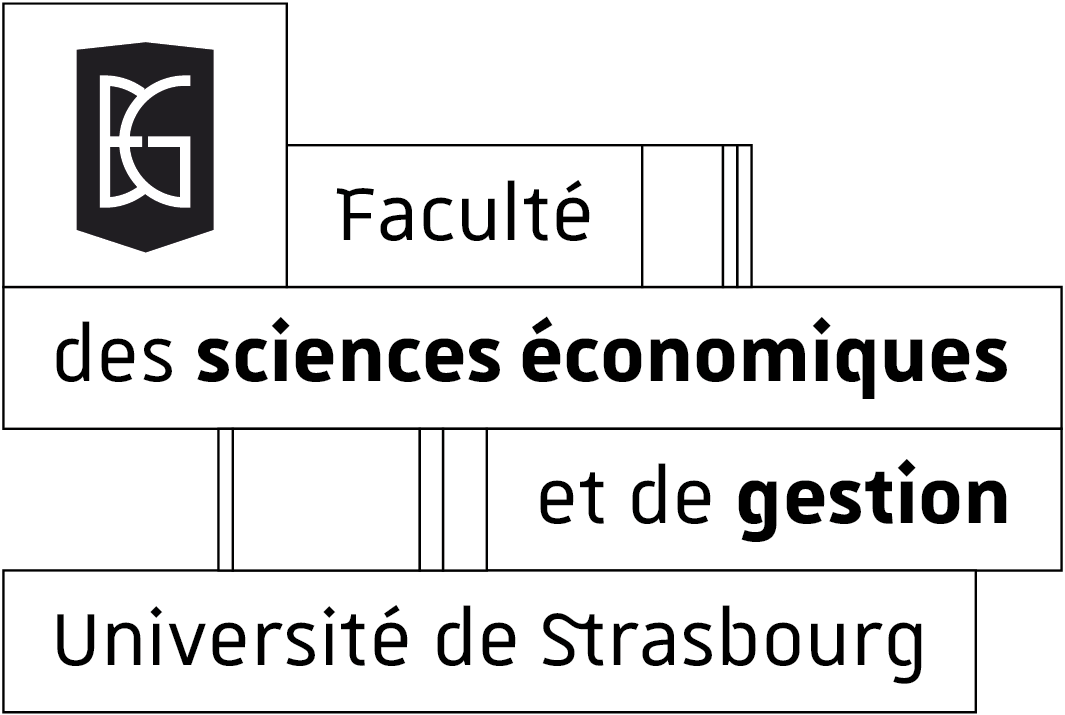
Engage on social media
(My X Account)
(My LinkedIn Account)
(Faculty of Economics and Management, University of Strasbourg)
(CITY College, University of York Europe Campu)
Summary
Key People
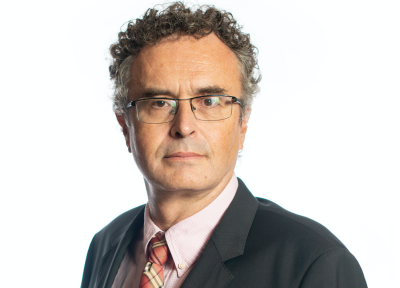
Leslie T. Szamosi
Director Pan-European MBA
City College -University of York Europe Campus
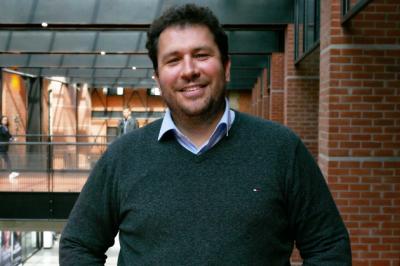
Claude Guittard
Dean Faculty of Economics and Management
Faculty of Economics and Management,
University of Strasbourg

Grégory Hebinger
Head of the Entrepreneurship Unit
University of Strasbourg
Acknowledgements
I thank my students for the courses we've shared. I know that sometimes I tested new teaching methods and content that didn’t always work, but I believe in learning by trial and error :o). I also thank my colleagues and the Dean and Vice Deans of the Faculty of Economics and Management at the University of Strasbourg for their support and professor Szamosi for the great opportunity to teach in the pan-european MBA. Your contributions have greatly shaped my journey.
Images

Thierry Burger-Helmchen
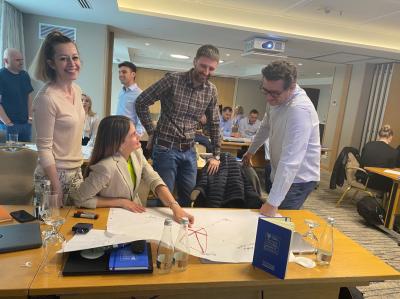
Group Exercise in Romania
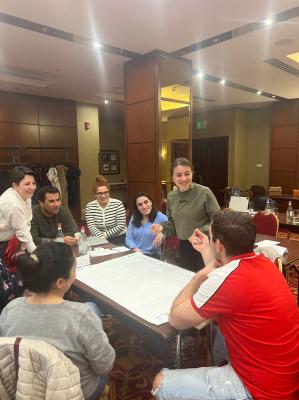
Group Exercise in Arménia
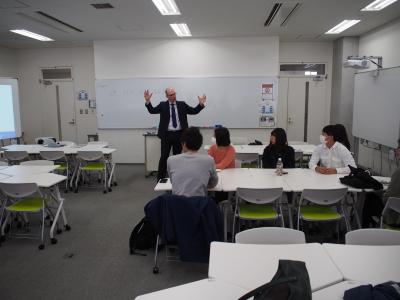
Teaching for a Small Audience During COVID
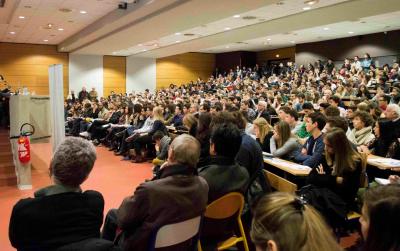
Teaching for a Wider Audience in Strasbourg: All Generations

The New Building of Our Faculty of Economics and Management
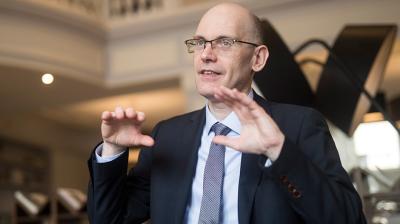
Thierry Burger-Helmchen (2)
IMPACT STORY
Impacting lifes
While many measure impact in quantitative terms, I prefer to assess it qualitatively—by looking at how entrepreneurship and strategy education improves the lives of students. These examples highlight entrepreneurs, agents of innovation, and intrapreneurs, all using strategic entrepreneurial mindsets to achieve their goals.
One such story involves Aram and Lilith, two students from Armenia, who initially started a small convenience store to serve their local community. Through our program, and by learning from international success examples, they gained the insight to expand their business across the country, helping to create jobs for the poorest in their region.
Another impact can be seen in the journey of Teia, a female student from Georgia. Through our program, she gained the skills to launch a successful venture focused on integrating technology to develop medical tests. Her business not only thrived but also became a beacon of inspiration for other women in her community, demonstrating how entrepreneurship education can drive social change and promote gender equality by linking entrepreneurs in tech companies with standard medical operations.
A third example is the collaboration between Lira from Kosovo and Nikola from Macedonia. They worked in the same international company and began exchanging ideas during the course. Now, as intrapreneurs, they are expanding the company’s activities into neighboring countries, demonstrating the value of cross-cultural understanding in today’s globalized world.
LEARNINGS
Lessons learned
The entrepreneurial mindset is something that develops slowly and then all at once, much like Hemingway’s famous line: “Gradually, then suddenly.” In addition, like many of my colleagues, I have witnessed how economic principles and the desire to become an entrepreneur are remarkably similar and universal across different contexts. But I’m always surprised as an entrepreneurship educator by how differently these universal concepts are applied in practice due to cultural differences. The same foundational ideas take on entirely new forms when filtered through diverse cultural lenses, leading to innovative solutions that might not emerge in a more uniform environment. Even for the simplest things, like where to place a product in a store, which technology to use, or how quickly administrative approvals can be obtained, cultural differences play a significant role.
Therefore, for me, the only way to deliver meaningful teaching is to fully embrace the experiences of the students. This means knowing their backgrounds and CVs before they come to class, engaging with them during breaks, and encouraging them to share their experiences in class (as entrepreneur or simple managers). However, it's crucial to carefully distinguish what is generalizable from what is not. This is usually the moment when the academic in me steps in, helping students sift through the noise, confront their experiences with theory, and improve their own practice. And then, gradually, they suddenly transform into better entrepreneurs, agents of innovation, or intrapreneurs.
FUTURE PLANS
What's coming?
My future plans involve evolving my teaching methods to better address the diverse needs of students. I've noticed that students often struggle with predicting how competitors, suppliers, or partners might react to business decisions. In short “What to expect next in the business?”. To address this, I plan to introduce a pinch of probability-based approaches into the curriculum, helping students better understand and quantify potential outcomes without overwhelming those less comfortable with numbers. Additionally, I want to explore the contrast between what can be achieved in large groups of 300 or more students versus smaller groups or even one-on-one mentoring. Here, I will incorporate more gamified, non-business-related activities, such as board games, to help students grasp the dynamics of others' moves and strategies.
At the University of Strasbourg, but also at City College, University of York European Campus, we are uniquely positioned with a strong multi-science orientation to balance the entrepreneurial mindset with a scientific approach. We have established Fab Labs where students can engage in hands-on projects, applying the scientific process to analyze and solve problems. By placing students in these environments, we aim to develop their scientific minds, which is essential for society, and to help them formulate strong entrepreneurial and research questions that drive meaningful innovation.
Finally, like all teachers around the world, the most pressing challenge will be to use artificial intelligence in a smart way.

